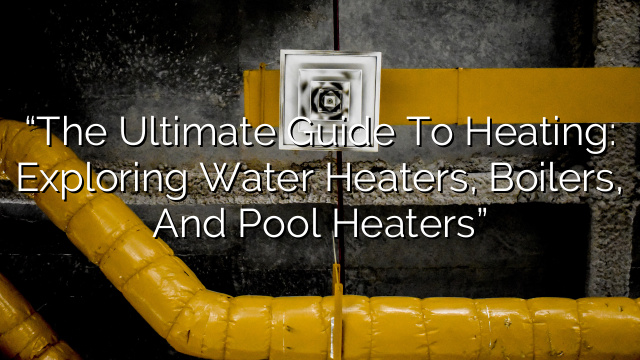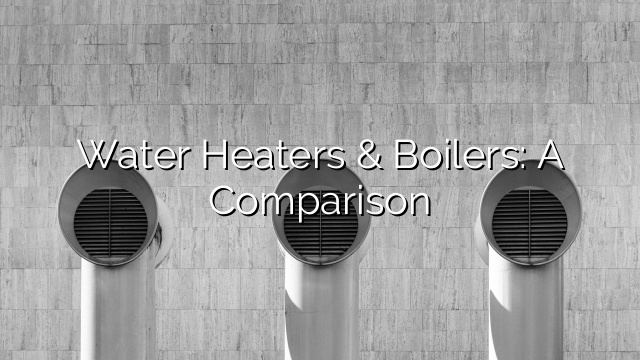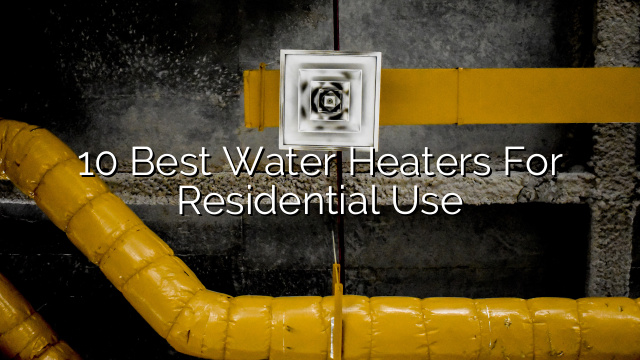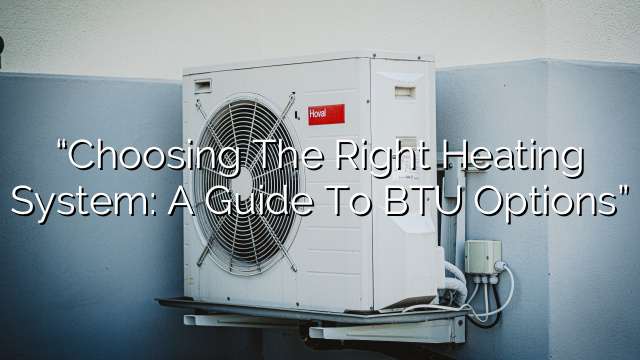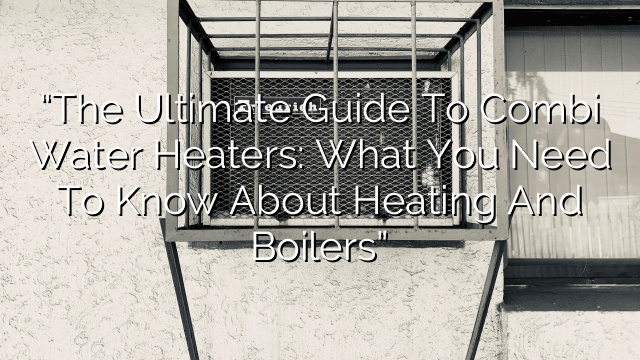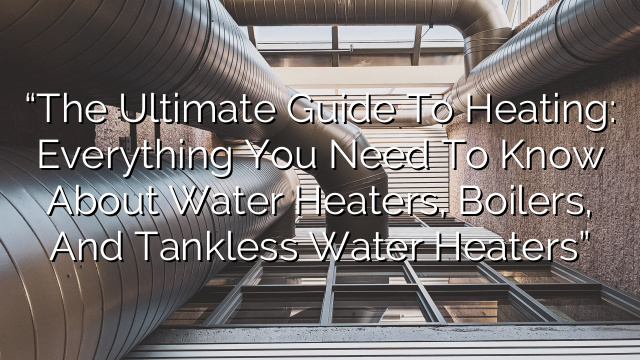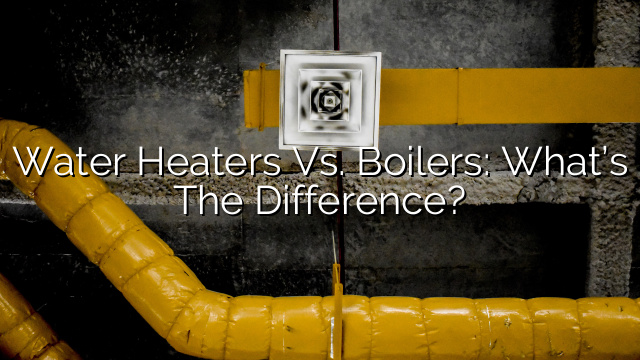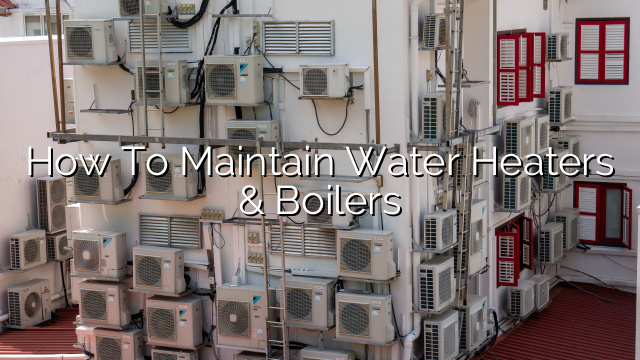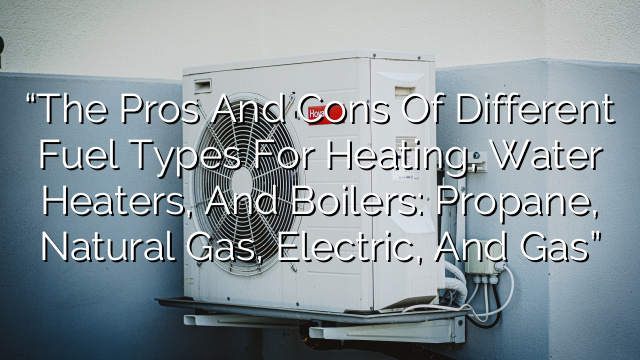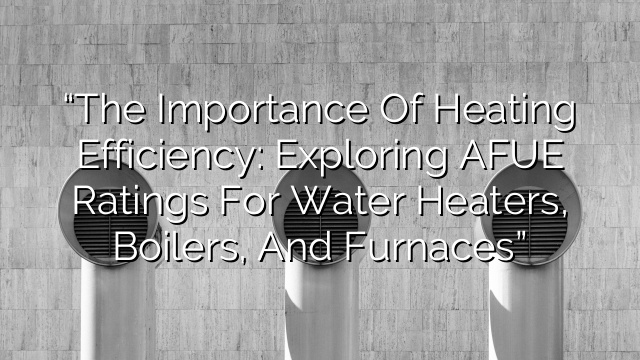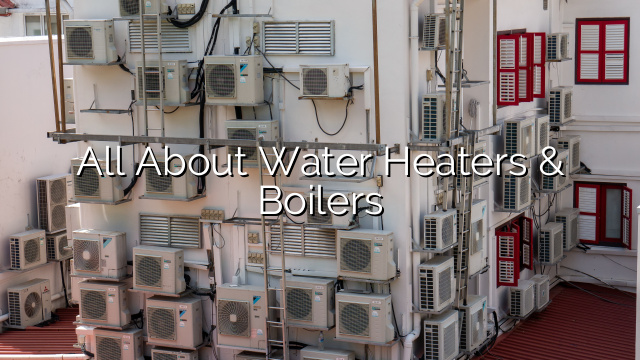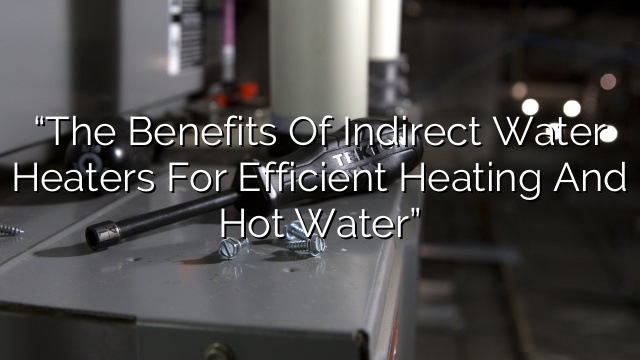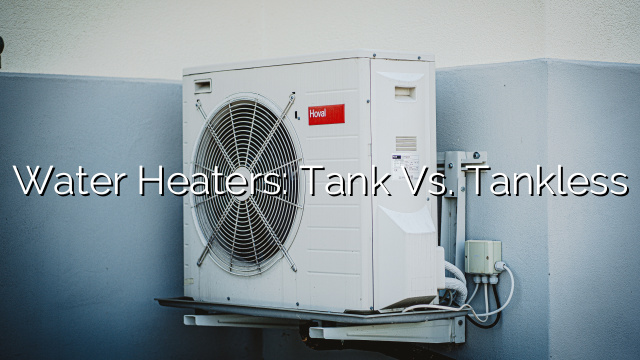Introduction
Heating is an essential component of any home or business, providing comfort and warmth during the cold months. There are various heating options available, each with its own benefits and considerations. In this ultimate guide, we will explore three types of heating systems: water heaters, boilers, and pool heaters.
Water Heaters
A water heater is a crucial component of any home, providing hot water for bathing, cooking, and cleaning. There are two main types of water heaters: tankless and tank-based.
Tankless Water Heaters
Tankless water heaters, also known as on-demand water heaters, provide hot water only when needed. They heat water directly as it flows through the unit, eliminating the need for a storage tank. This can be an energy-efficient option, as there is no standby heat loss like with tank-based heaters. Tankless water heaters are typically more expensive upfront but can provide long-term savings on energy bills.
Tank-based Water Heaters
Tank-based water heaters store and continuously heat a large volume of water in a reservoir. They are available in various sizes, typically ranging from 20 to 80 gallons. Tank-based water heaters use either gas or electricity to heat the water and maintain it at a set temperature. While they may have higher energy costs due to standby heat loss, tank-based water heaters are generally more affordable upfront.
Boilers
A boiler is a heating system that uses hot water or steam to distribute heat throughout a building. They are commonly used in larger residential and commercial settings. Boilers are known for their efficiency, longevity, and ability to provide consistent heat even in extreme cold conditions.
Types of Boilers
There are three main types of boilers:
- Conventional Boilers: Conventional boilers are the most common type and use a storage tank to store and heat water or steam. They are available in different sizes and can provide heat for both space and water heating needs.
- System Boilers: System boilers are similar to conventional boilers but have additional components, such as an expansion vessel, built into the unit. This allows for quicker installation and frees up space in the home.
- Combi Boilers: Combi boilers, short for combination boilers, provide both hot water and central heating in one compact unit. They do not require a storage tank and are ideal for smaller homes with limited space.
Pool Heaters
A pool heater is designed to maintain the temperature of a swimming pool, allowing for year-round enjoyment. There are three main types of pool heaters: gas, electric, and solar.
Gas Pool Heaters
Gas pool heaters use natural gas or propane to heat the pool water. They are known for their quick heating capabilities and ability to maintain a desired temperature even in colder climates. Gas pool heaters are typically more expensive upfront and have higher operating costs due to fuel consumption.
Electric Pool Heaters
Electric pool heaters use electricity to generate heat and warm the pool water. They are cost-effective to purchase and easy to install. However, electric pool heaters may have higher operating costs compared to gas heaters, especially in regions with high electricity rates.
Solar Pool Heaters
Solar pool heaters utilize the sun’s energy to heat the pool water. They are the most environmentally friendly option and have low operating costs once installed. Solar pool heaters may require a larger upfront investment but can provide long-term savings on energy bills. They are best suited for regions with ample sunlight.
FAQ
1. How long do water heaters typically last?
The lifespan of a water heater can vary depending on factors such as usage, maintenance, and water quality. On average, tankless water heaters can last up to 20 years, while tank-based water heaters have a lifespan of around 10-15 years.
2. Are boilers more energy-efficient than other heating systems?
Boilers are known for their energy efficiency, as they can reach efficiency levels of 90% or higher. This is due to their ability to distribute heat evenly and their use of water or steam as a heat transfer medium.
3. How long does it take to heat a pool using a gas heater?
The time it takes to heat a pool using a gas heater can vary depending on factors such as the size of the pool, desired temperature, and weather conditions. On average, gas pool heaters can raise the water temperature by 1-2 degrees Fahrenheit per hour.
4. Are solar pool heaters suitable for all climates?
Solar pool heaters are best suited for regions with ample sunlight. While they can still provide heat in cloudy or cooler climates, their performance may be impacted.
5. Can I replace my existing water heater or boiler with a different type?
In most cases, it is possible to replace an existing water heater or boiler with a different type, but it may require modifications to the plumbing and heating systems. It is recommended to consult with a professional to determine the feasibility and potential costs of such a replacement.
Conclusion
Heating systems, such as water heaters, boilers, and pool heaters, play a crucial role in providing comfort and warmth in homes and businesses. Understanding the different types and their features can help homeowners and businesses make informed decisions when it comes to heating their space or pool. Whether it be a tankless water heater, a boiler for efficient heating, or a pool heater powered by gas, electricity, or solar energy, there is a heating solution available to meet every need and budget.

